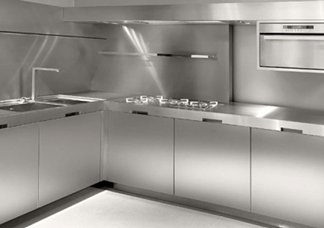Materials scientists and engineers at the University of Birmingham have devised a method of making stainless steel surfaces resistant to bacteria. By introducing silver or copper into the steel surface, the team has developed a technique that they believe not only kills bacteria but is exceptionally hard and resistant to wear and tear during cleaning. Bacteria resistant surfaces are ideal for hospitals, to prevent the spread of super bug infections on stainless steels surfaces; in medical equipment, for example, instruments and implants, and for use in the food industry. The researchers have developed a surface alloying technology using Active Screen Plasma with a purpose designed composite or hybrid metal screen. The combined sputtering, back deposition and diffusion allows the introduction of silver into a stainless steel surface, along with carbon and nitrogen. The nitrogen and carbon make the stainless steel more tough and durable while the silver acts as the bacteria killing agent. 

